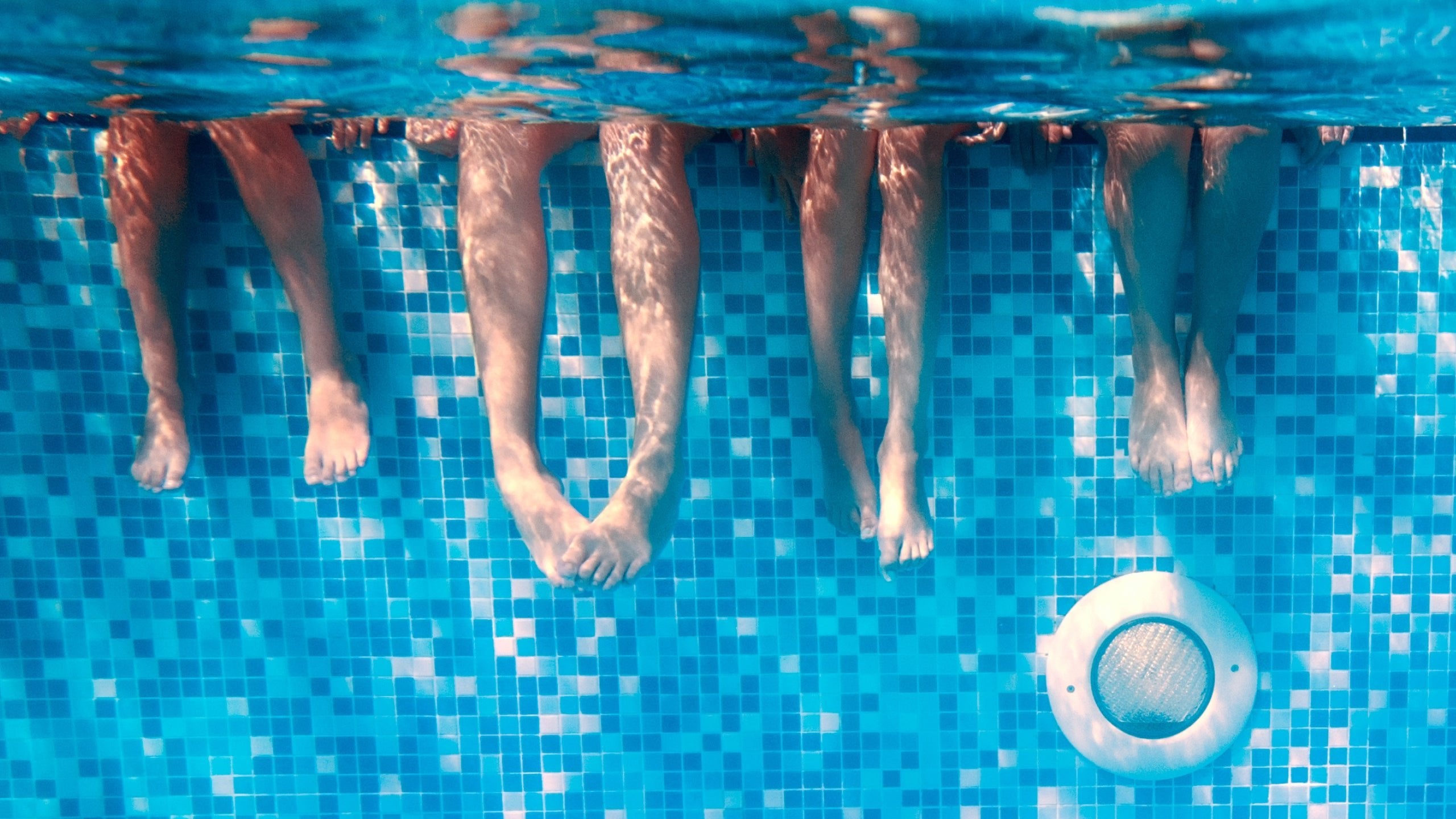With the weather outside heating up, a dip in the pool—or ocean, or lake—has never sounded better. But if you have eczema, you might be hesitant to go for a swim. You might be worried about triggering a flare, nervous that the water will sting, or uncomfortable baring your skin in a bathing suit. Our hope is that you never feel like you need to miss out because of your skin. Here’s what you need to know about swimming and eczema—and what you can do to keep your skin safe and enjoy a refreshing dip.
Can Swimming Pools Make Eczema Worse?
The impact of swimming pools on eczema is personal. Some people find that swimming in a chlorine pool helps their eczema—but for others, it can make their skin worse. The data on eczema and chlorine is also contradictory: some research suggests swimming in a chlorine pool may improve eczema symptoms, while other studies report that repeated exposure to chlorine damages the skin barrier, resulting in higher rates of eczema among lifeguards and other frequent swimmers.
Swimming in a pool that uses another method of water sanitization, such as salt water or bromine, may be a better alternative for your skin.
Effects of Chlorine on Skin
You know how your skin feels dry after you’ve been in a pool? Here’s why: a well-balanced chlorine pool has a pH level between 7.2 and 7.8. Skin has a normal pH of around 4.1 to 5.8, depending on the area of the body. That means that the pH of a pool is more alkaline than the skin.
Slightly acidic skin pH is healthy and important to maintain moisture and protect the body from foreign invaders like bacteria and toxins. When the skin becomes too alkaline, it gets drier and more sensitive, which can lead to eczema flare-ups.
In some people, however, chlorine may improve eczema symptoms. Doctors note that’s because swimming in a pool is similar to taking a bleach bath—an eczema management technique where you add a quarter to a half cup of bleach to a full bathtub and soak for ten minutes. There’s conflicting evidence as to whether bleach baths are actually antimicrobial, but studies show they can improve eczema symptoms and reduce inflammation and itching.
Bleach and chlorine are similar chemicals, and they’re used in similar concentrations in bleach baths and chlorinated pools. You may find that swimming in a chlorinated pool has the same impact on your eczema as a bleach bath.
Can Chlorine Cause Eczema?
Chlorine may exacerbate eczema, but it won’t cause it. The exact cause of atopic dermatitis remains unknown. However, doctors and research believe it to be a combination of genetics, bacterial imbalances in the skin microbiome, and an overactive immune response.
Is Salt Water Good for Eczema?
Just like with chlorine, there is no one-size-fits all answer to whether jumping in the ocean or a saltwater pool will help or hurt your eczema. Some people find salt water soothes their eczema. Others find it irritating.
For now, the best thing you can do is test out how your eczema reacts to salt water in small doses. Start with a short period of exposure before spending too much time in the ocean with your family and friends this summer.
Should You Swim in a Lake When You Have Eczema?
The biggest concern with swimming with eczema in a lake is the cleanliness of the water. Some lakes are cleaner than others. Stagnant lakes that are home to algae, fungi, and bacteria can negatively impact your eczema. Before you jump in, visually check the quality of the water.
Also, be aware of swimmer’s itch, or cercarial dermatitis. Swimmer's itch occurs most commonly from lakes or ponds as a result of parasites that nestle into your skin while you're swimming in the water. Symptoms include itching as well as small blisters and pimples — not to be confused with the itching, flaking rashes of eczema.
How to Care for Eczema While Swimming
So you’ve decided to go swimming and embrace some summer fun. That’s great! Now, how do you protect eczema-prone skin while enjoying it? Here are some quick tips:
Apply Atopic Dermatitis Barrier Cream
Applying a barrier cream before and after swimming in a pool, lake, or ocean helps to protect and moisturize your skin. Skin barrier creams are rich in humectants, emollients, and occlusives that help to lock in moisture, decrease itching, and soothe eczema.
We recommend Gladskin Eczema Cream with Micreobalance® clinically proven to reduce eczema itch and redness in four out of five users. Make sure to wait five minutes after applying before you go for a swim.
Use Sunscreen
Applying sunscreen before swimming will help protect your skin from the harsh effects of UV rays. The sun can dry and irritate the skin, causing more damage to your eczema and overall skin health.
Nonetheless, choose your sunscreen wisely. Some chemicals often found in sunscreens are irritating for sensitive skin. Sunscreens made from zinc oxide and/or titanium dioxide often cause less irritation. Avoid chemicals like oxybenzone. For the best protection, choose SPF 30 or greater.
Shower and Moisturize Right After You Swim
Rinse off the chlorine or salt with a lukewarm shower post-swim. Avoid taking a hot, long shower, which can exacerbate eczema symptoms. While showering, choose a body wash free of parabens, fragrances, and harsh soaps. Moisturize immediately. This is another perfect opportunity to apply our Eczema Cream.
Enjoy Summer to Its Fullest
Learn more about how our Eczema Cream can provide relief so you can enjoy your beach trip in peace.

